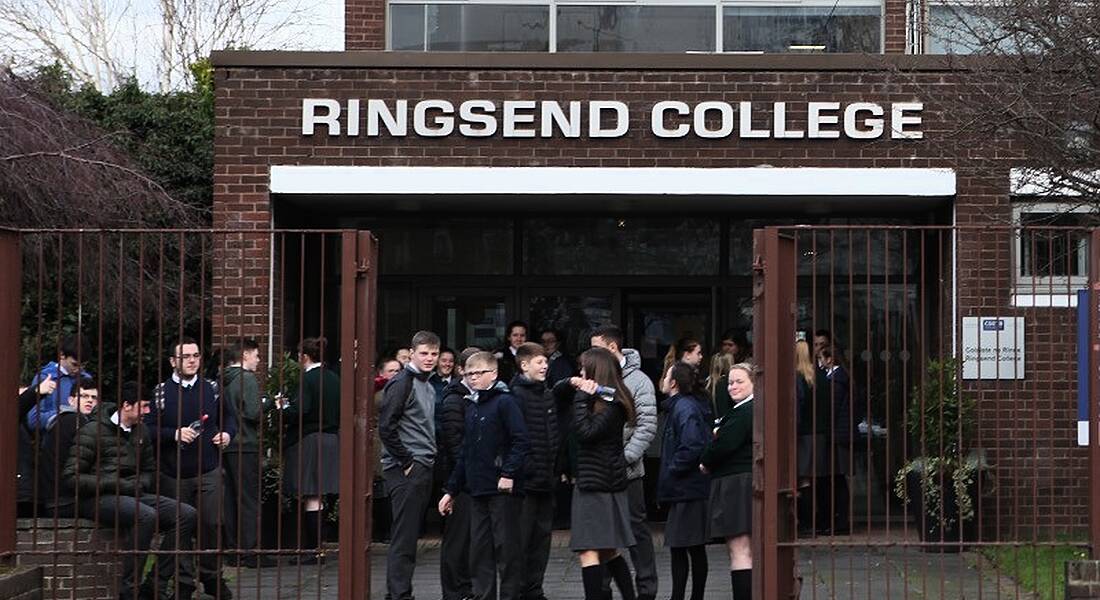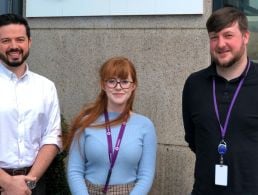Can work placement at local companies encourage more young women to consider the career opportunities in STEM?
Last summer marked the launch of Teen-Turn, a new initiative to inspire young women to engage with careers in science, technology, engineering and maths – more simply known as STEM.
Opportunities in STEM careers are on the up as our digital age has driven a greater reliance on technological skills, and analytical thinking and decision-making across most (if not all) sectors. Unfortunately, a known gender imbalance in these roles is expected to continue unless direct action is taken.
Teen-Turn is just one of many initiatives tackling this issue at the early stage of the pipeline. The programme targets students in secondary school, before they begin making the Leaving Certificate subject choices that could determine their course of third-level study and, eventually, their first career.
Teen-Turn’s pilot scheme involved five schools, all of them designated to have students at a social or economic disadvantage that risks impacting their education. The educational disadvantage at these DEIS schools is addressed in the Government’s Delivering Equality of Opportunity in Schools action plan towards greater social inclusion.
Through working with DEIS schools, the pipeline of women in STEM that Teen-Turn hopes to build will include those from less privileged backgrounds, walking these industries towards greater overall diversity.
How Teen-Turn works
As part of the pilot, two transition-year students from Ringsend College in Dublin took on two weeks’ work placement at Murex, a financial software firm specifically chosen because it was local to the school’s area.
“We’re delighted to be involved in it,” said Laura Murphy, head of operations at Murex. “It provides an opportunity for the girls to come in and shadow at IT female role model and also, it raises awareness that there definitely is an untapped resource in women in IT.”
According to Ringsend College deputy principal Fiona Whitney, organising the placements was no trouble at all. “We contacted the parents of two students who we knew would be really, really good for the programme and they were absolutely delighted for their daughters to be involved,” she said. “It was a really easy process from start to finish.”
The selected students, Chloe McDonnell and Laura Byrne, were asked to review a website and conduct some research in order to propose a redesign. The project offered them the chance to take a critical look at online content, as well as to learn about user-experience design and the tools developers use to make online interactions user-friendly.
Murex employee Dovile Janusauskaite, who was a mentor on the programme, was happy to show these young women that there’s more to STEM careers than a technical mindset.
“I really wanted to show the girls that, actually, there is a lot of functional work that can be done in the technical industry as well,” she said. “Because there’s always going to be a need for quality functional product managers, for designers, for the business analysts.”
Both McDonnell and Byrne studied and enjoyed science and maths at Junior Cert level and, after their Murex Teen-Turnship, this interest might continue.
“When I finish school, I’d like to go into a job working with IT, I think. But I’m not sure yet,” said Byrne.
“I though it was a good experience and I think that other girls should get more involved in IT as well,” said McDonnell.
Long-term impact
The long-term impact of this pilot programme will take time to be revealed, as STEM pipeline issues really come to the fore at third level when many young women start to drop out of these traditionally male-dominated courses. Work is required to mend the pipes down the line to ensure young women encouraged by programmes such as Teen-Turn aren’t forced out when they move on to higher education.
Whitney, however, is optimistic. At Ringsend College – a mixed school – students can do ‘taster’ classes on the Leaving Cert subject options which, it is hoped, will help achieve gender parity in subjects such as engineering and physics. And then, there’s the added engagement with Teen-Turn, which Whitney sees as “a fantastic programme”.
“It’s something that will have a lasting impact and we’d like to be involved with in the future,” she said.
Looking for jobs in tech or science? Check out our Employer Profiles for information on companies hiring right now and sign up for our Career Republic e-zine for a weekly digest of sci-tech careers news and advice.




